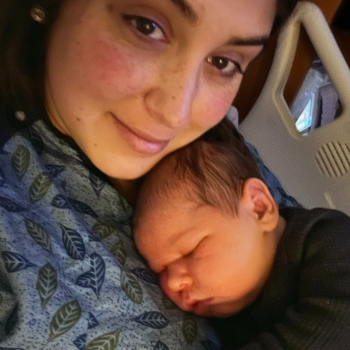
Preeclampsia Registry FAQs
Last Updated on May 31, 2023
Answers to our most frequently asked questions about the registry
A registry is a platform to collect information from people who share the same conditions and/or have similar experiences. This information is shared with researchers to explore new ideas and to conduct multiple studies.
Throughout the registry, the term “preeclampsia” is used to include all hypertensive disorders of pregnancy such as preeclampsia, eclampsia, HELLP syndrome, gestational hypertension, chronic hypertension with superimposed preeclampsia, and others. We encourage you to enroll.
Yes, the registry is available to participants anywhere in the world. However, it’s only available in English and you should only enroll if you can read and comprehend English. We are working to translate the registry to other languages.
Yes. A parent or guardian will need to review the consent form with you. You may also contact the Registry Manager with any questions. Both you and your parent or guardian will need to agree for you to participate.
-
Create an account here.
-
Review and approve the consent form.
-
Answer a series of questions. We will collect the most important information in the first module of questions (A Quick Overview), which will take approximately 10-15 minutes to complete. The entire enrollment survey can take up to an hour to complete. You don’t have to finish it all at once.
- Provide a health update for you and your child/children at least once a year. We would also like you to add new pregnancies, if applicable.
- Answer new questions when researchers have new ideas to explore.
- Consider enrolling in additional studies.
- Donate a sample of blood or saliva for additional studies. (If you decide to donate a sample, you will need to provide separate consent)
- Upload or give permission for us to request your medical records. This may help us to validate and verify the information you entered into the registry. You will have access to any records we collect.
Some registry participants will be invited to provide a saliva or blood sample to be stored and used for various studies. You can decide if you would like to be contacted about providing a sample as you review the registry’s consent form. If you are invited to provide a sample, you will be asked to review and agree to an additional consent form.
You have the option to be contacted about joining other clinical trials and studies you may qualify for. We may contact you about answering new questions launched in the registry.
There is minimal risk in participating in the registry. There are some questions that may make you feel uncomfortable, but you don’t have to share any information you don’t want to. You can take as much time as you need to complete the questionnaire and may skip questions that you feel are too personal.
There is an unlikely chance of a data breach in which some of your personal information may be illegally accessed from our secure servers and database. Although we have extremely tight security measures, we will let you know if this happens.
Call the Registry Manager, Alina Brewer, at 435-216-4227 or email at registry@preeclampsia.org.
Your personal information such as your name, address, or other information that identifies you or your family will be labeled with a code number, encrypted, stored in a secure place, and protected with a password. Your identifiable information will not be shared with anyone outside the Registry. Approved scientists, researchers, and clinicians will only receive de-identified information. We call this information “de-identified” because all personal identifiers have been removed.
All other information (such as hard copies of records) will be stored in locked files in accordance to the standards established by the HIPAA Privacy Act. To review the entire HIPAA Privacy Act, and for additional information, see the Office for Civil Rights website: http://www.hhs.gov/ocr/hipaa.
Insurance companies are not permitted access to research records, and you do not have to tell your health insurance that you are participating in the registry.
The Preeclampsia Registry is a research program operated and paid for by the Preeclampsia Foundation. There is no cost to you to participate. As a 501(c)(3) non-profit organization, the foundation's mission is made possible through individual and corporate donations. If you would like to support this and/or other initiatives, please consider giving a donation here. You may also contact our Director of Development to discuss corporate or major gift support.
You can withdraw from the registry at any time and are free to do so without providing any explanation. However, we may not be able to retrieve information that was already accessed by researchers prior to your request. You may withdraw your participation by writing an email to registry@preeclampsia.org or by writing a letter to:
Eleni Tsigas
Principal Investigator
Preeclampsia Foundation
3840 W. Eau Gallie Blvd, #104
Melbourne, FL 32934
Your questionnaire is locked to any changes after you click "submit" in order for us to protect the quality of the information we gather. If you think you've made a mistake or recently learned of new information that would have impacted your responses, simply email the Registry Manager at registry@preeclampsia.org for assistance.
Select “Forgot Password” on the log-in page and check your email to receive a temporary password. When you log back in, you will be prompted to change your password. If you experience any issues, email the Registry Manager at registry@preeclampsia.org for assistance.
Researchers, please contact our Research Manager if you would like the Preeclampsia Foundation to help you recruit participants for a research study or focus group, or have any questions about the Preeclampsia Registry.

My perfect daughter, Katie, gave birth to her first child just eight days before she passed away due to postpartum complications. Her deliver...
ReadMoreRelated Articles

Your story is needed to improve outcomes for moms like you. Add your voice to critical preeclampsia research to ensure that every story is heard.

The Preeclampsia Foundation offers research funding, study recruitment, and other patient engagement services to researchers.

We provide research grant funding to advance progress towards detection, prevention, or treatment of preeclampsia, HELLP syndrome, and other hypertensive disorders of pregnancy.

April 8, 2025 - San Francisco, Calif. - Mirvie announced today the results from a breakthrough study published today in Nature Communications that reveal new advances in the biological understanding o...

For more on the Preeclampsia Foundation's work to amplify all research related to biomarkers for improved prediction and diagnostic tools, please visit https://preeclampsia.org/biomarkers. INDIANAPOL...

By Amanda Yang, MS Evidence-based healthcare comes from trustworthy research. Research is designed carefully, so that it can be repeated and tested by other scientists. Wrong information or bad data...

By Sig-Linda Jacobsen, MD Neurological symptoms are not uncommon in those who have preeclampsia. The most common symptom is severe headache. Some patients may also experience eclampsia, or seizu...

Summary by Jennifer Mitchell, MPH, PhD Preeclampsia is a serious condition that can happen during pregnancy and affects 2-8% of pregnancies around the world. It can cause health problems for both the...




